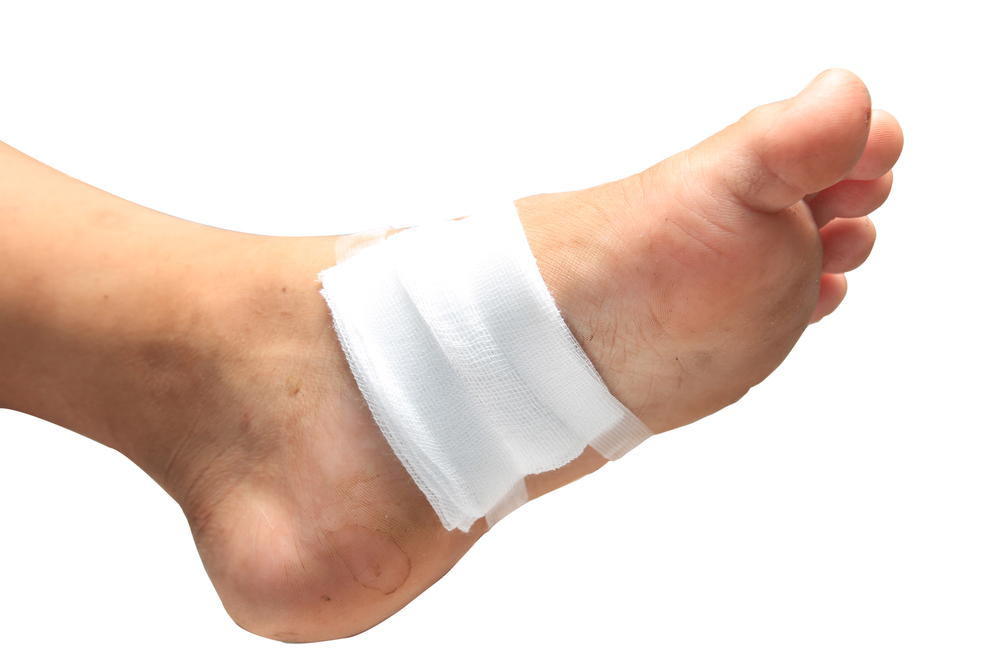 The healing process is comprised of different stages when wounds are located on the feet. It begins with blood vessels becoming constricted at the sight of the wound. This may be effective in preventing blood loss. When this is completed, collagen forms inside the wound, and this may enable the wound to close. The last stage occurs as the body produces additional collagen, and the wound will gradually disappear. There may be obstacles that exist which can prevent proper wound healing. These may include poor dietary choices, smoking, or medical conditions such as diabetes or immune disorders. When a wound develops, it is beneficial to clean the area by gently washing it, and removing any dirt that may be present. If you have a wound on your foot, it is suggested to speak to a podiatrist who can properly treat this ailment by applying the appropriate dressing, and prescribing the correct medication.
The healing process is comprised of different stages when wounds are located on the feet. It begins with blood vessels becoming constricted at the sight of the wound. This may be effective in preventing blood loss. When this is completed, collagen forms inside the wound, and this may enable the wound to close. The last stage occurs as the body produces additional collagen, and the wound will gradually disappear. There may be obstacles that exist which can prevent proper wound healing. These may include poor dietary choices, smoking, or medical conditions such as diabetes or immune disorders. When a wound develops, it is beneficial to clean the area by gently washing it, and removing any dirt that may be present. If you have a wound on your foot, it is suggested to speak to a podiatrist who can properly treat this ailment by applying the appropriate dressing, and prescribing the correct medication.
Wound care is an important part in dealing with diabetes. If you have diabetes and a foot wound or would like more information about wound care for diabetics, consult with Dr. Jeffrey Wachtel from Wachtel Family Foot Care. Our doctor will assess your condition and provide you with quality foot and ankle treatment.
What Is Wound Care?
Wound care is the practice of taking proper care of a wound. This can range from the smallest to the largest of wounds. While everyone can benefit from proper wound care, it is much more important for diabetics. Diabetics often suffer from poor blood circulation which causes wounds to heal much slower than they would in a non-diabetic.
What Is the Importance of Wound Care?
While it may not seem apparent with small ulcers on the foot, for diabetics, any size ulcer can become infected. Diabetics often also suffer from neuropathy, or nerve loss. This means they might not even feel when they have an ulcer on their foot. If the wound becomes severely infected, amputation may be necessary. Therefore, it is of the upmost importance to properly care for any and all foot wounds.
How to Care for Wounds
The best way to care for foot wounds is to prevent them. For diabetics, this means daily inspections of the feet for any signs of abnormalities or ulcers. It is also recommended to see a podiatrist several times a year for a foot inspection. If you do have an ulcer, run the wound under water to clear dirt from the wound; then apply antibiotic ointment to the wound and cover with a bandage. Bandages should be changed daily and keeping pressure off the wound is smart. It is advised to see a podiatrist, who can keep an eye on it.
If you have any questions, please feel free to contact our office located in Lansdale, PA. We offer the newest diagnostic and treatment technologies for all your foot care needs.




